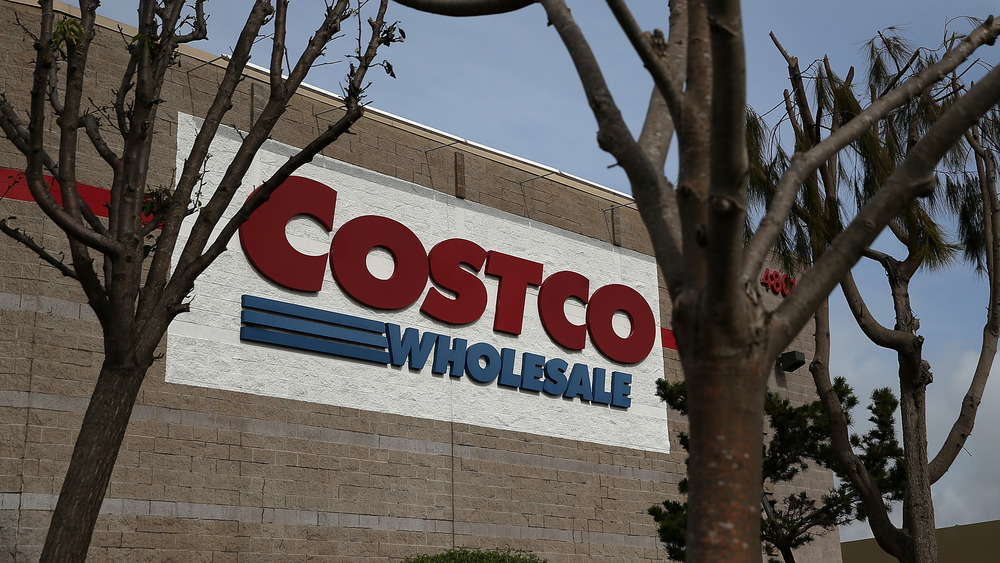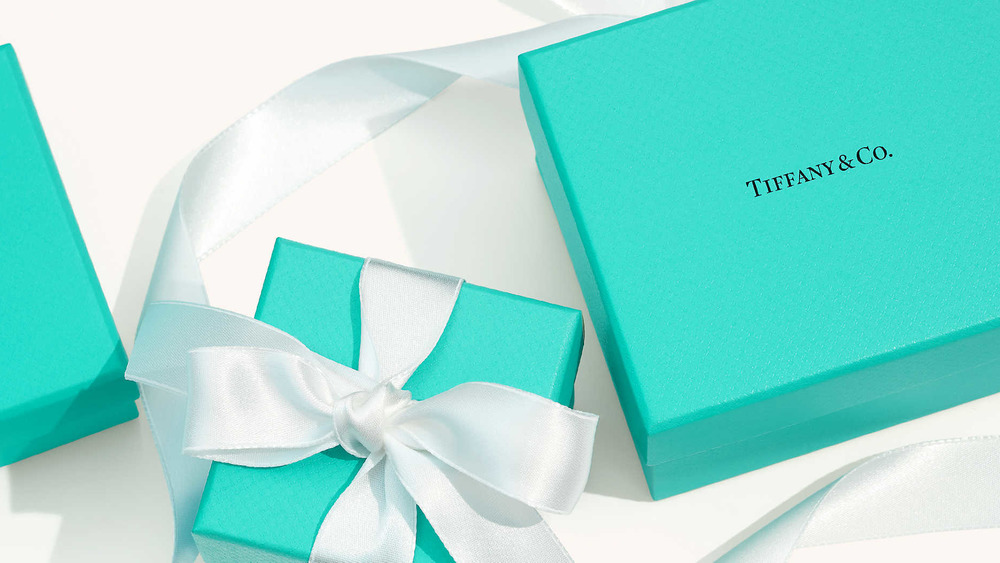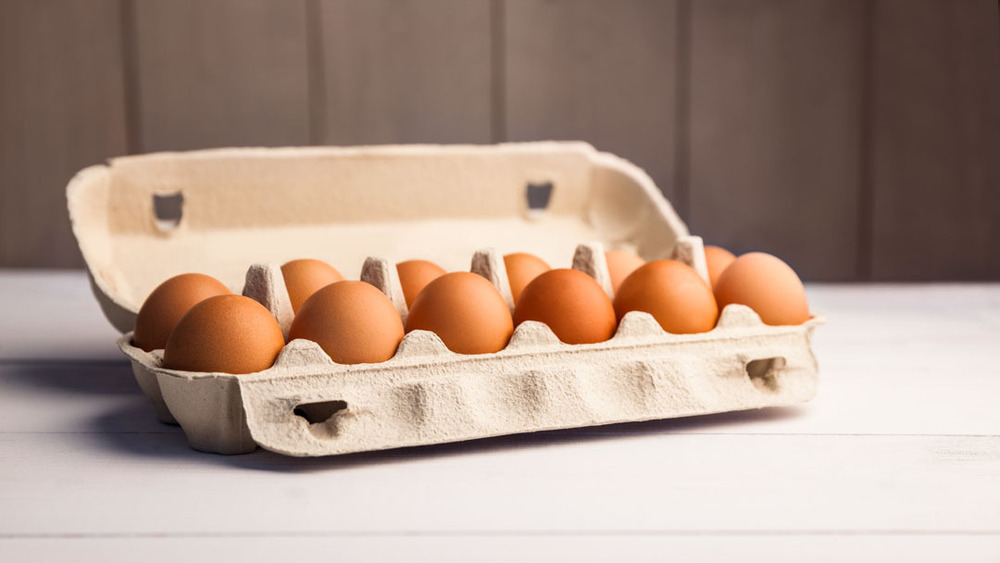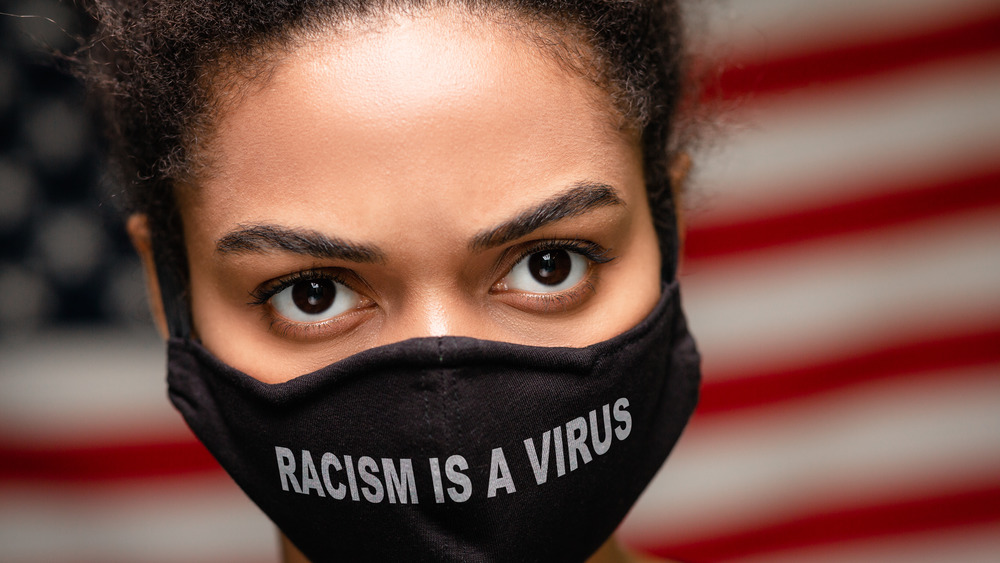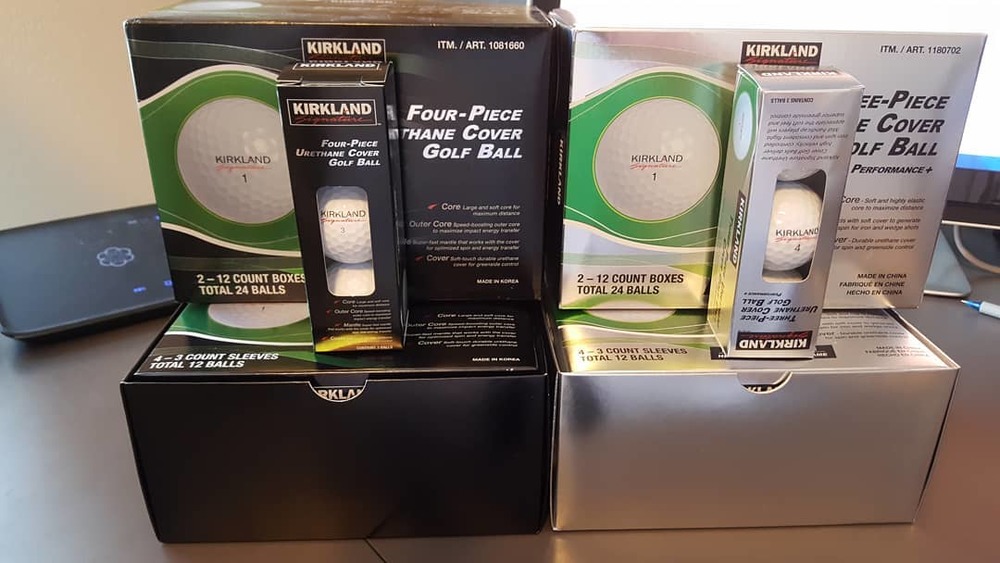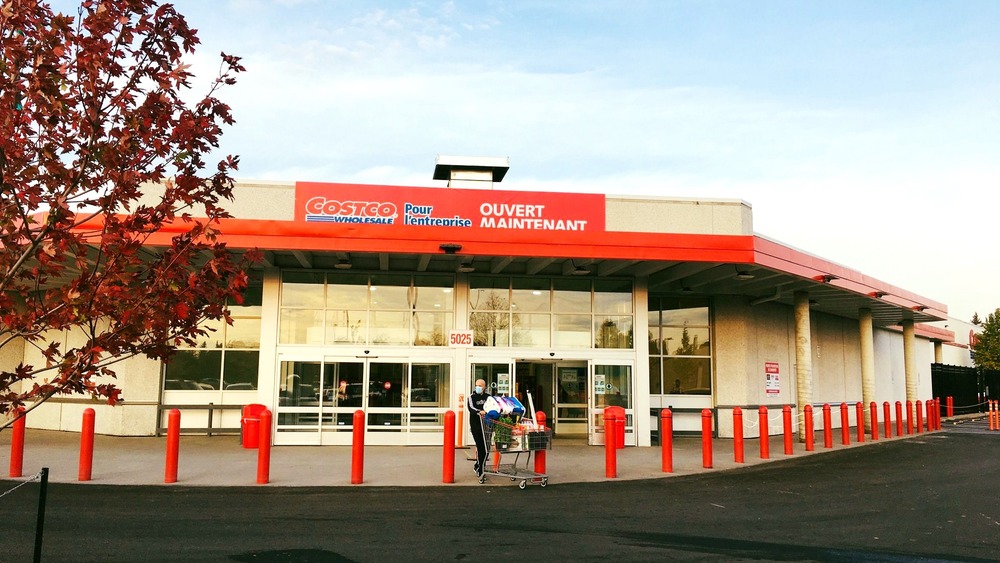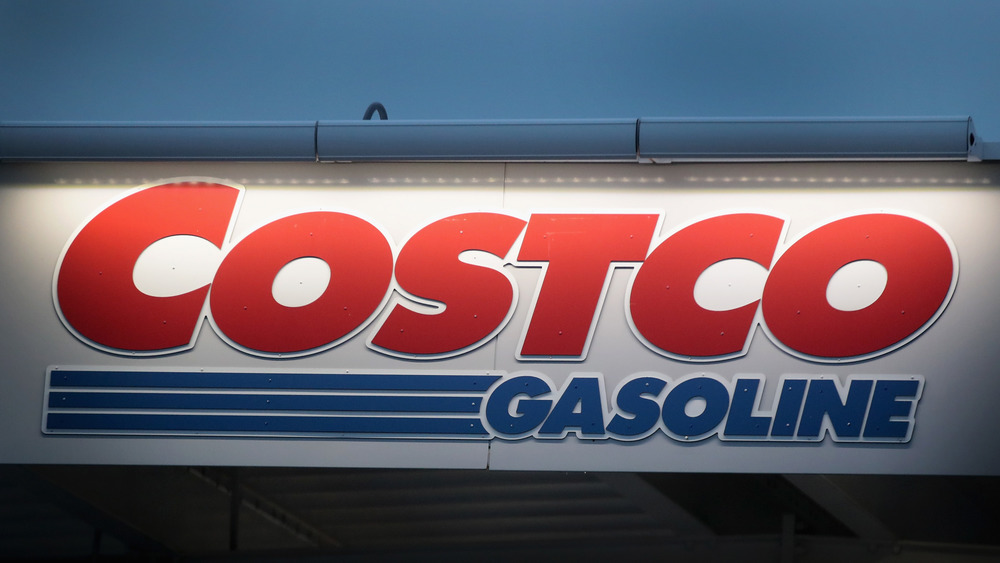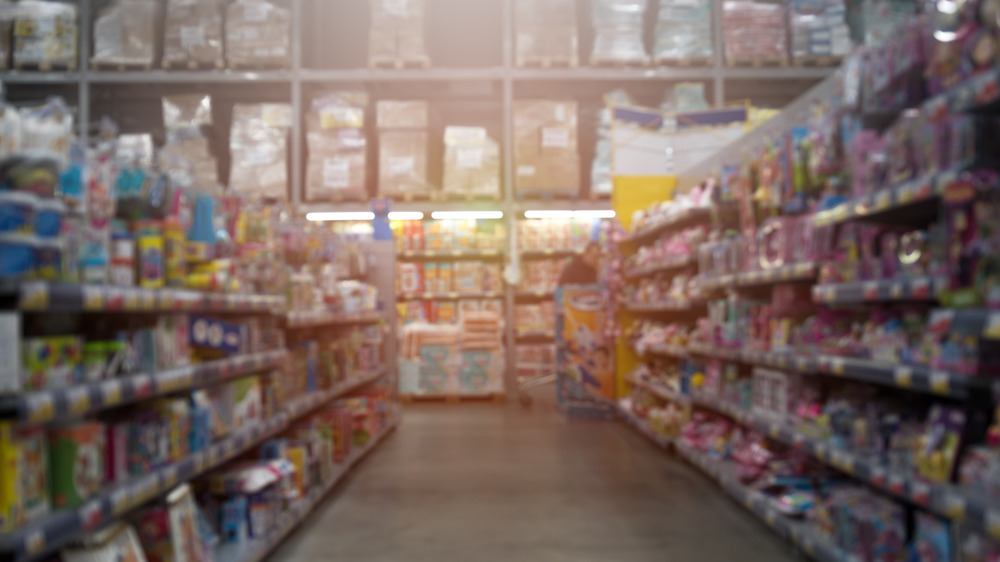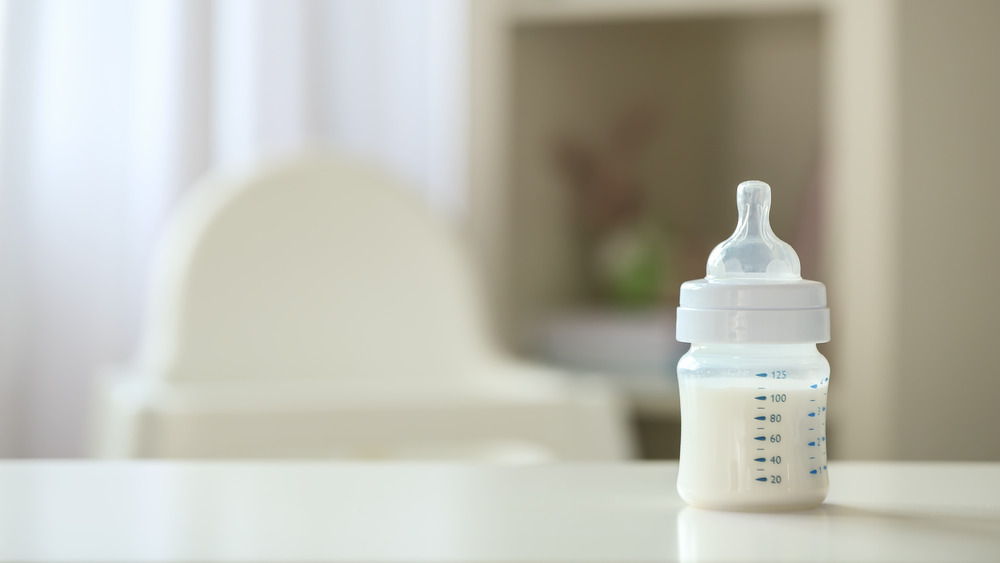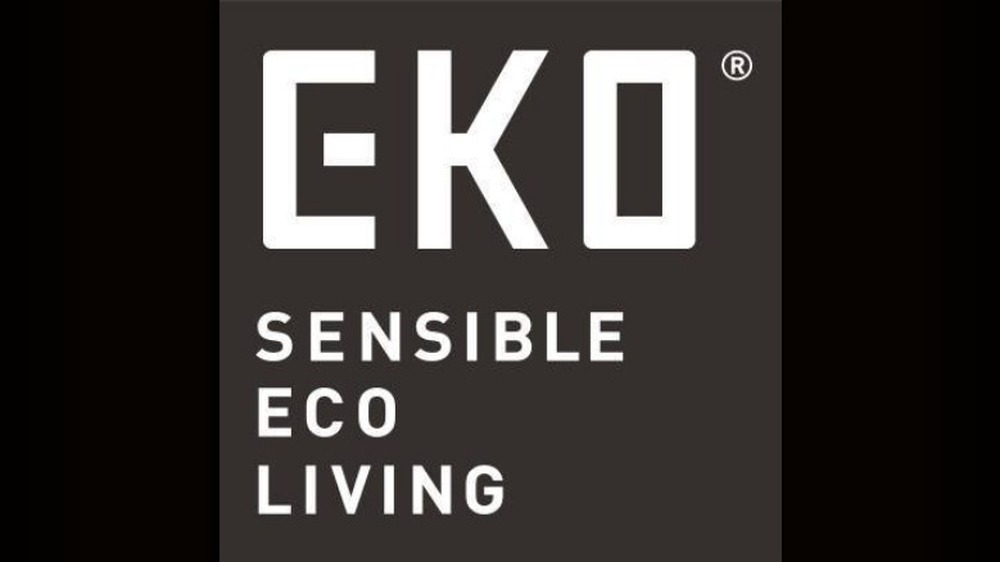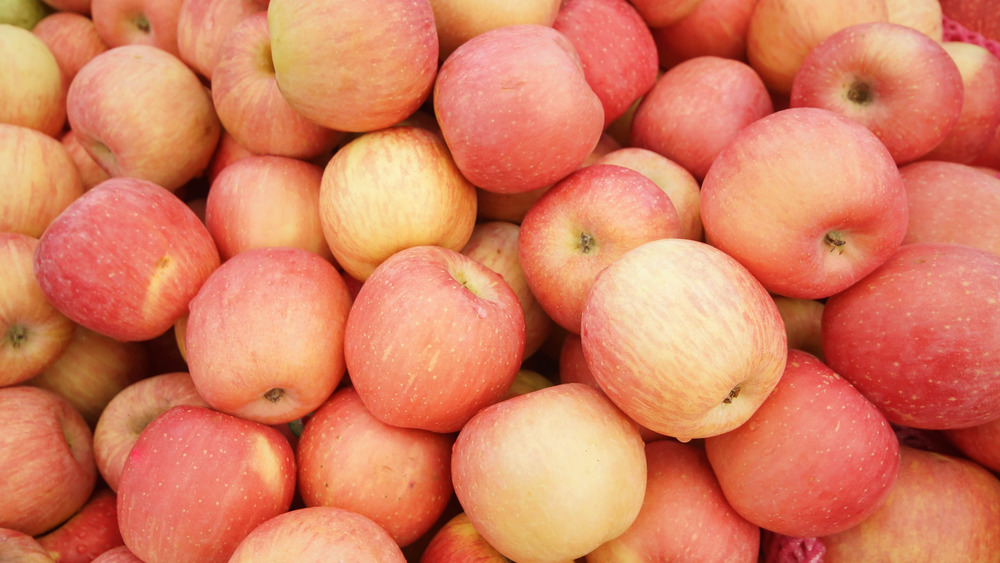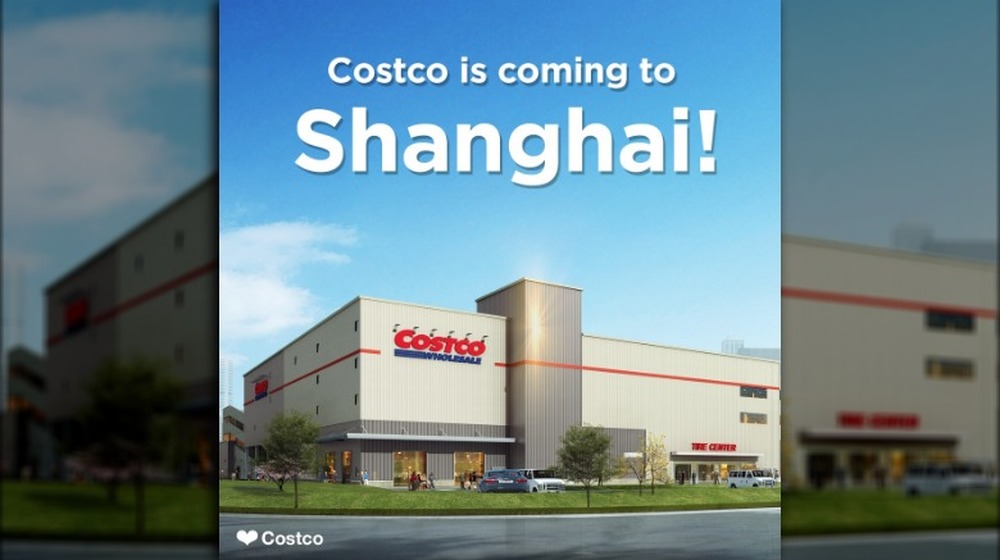Costco Decisions That Went Horribly Wrong
The 21st century is dominated by multinational corporations, and judging by their actions, these businesses differ from human beings in a multitude of ways. No matter our favorite brand, we might be reminded that companies don't exactly have feelings like the rest of us, after all. But there's at least one trait that worldwide conglomerates and human beings do have in common: making decisions that go horribly wrong.
Take Costco, for instance. That's right, the beloved warehouse chain that's received high praise from Forbes and Linkedin for its stellar customer service has also made plenty of blunders with both customers and employees. From shady products and false advertising to questionable responses to social and environmental issues, Costco's blunders run the gamut. Read below to learn more about the worst known calls this very non-human entity has made.
Costco might have sold mislabeled Tiffany jewelry
There are times in one's life when it's easy to be duped into buying a rip-off. As a 2015 New York Post article reported, the jewelry brand Tiffany & Co. believed that some Costco customers had been suckered into making such purchases. Tiffany had filed a lawsuit claiming Costco used the Tiffany name to sell engagement rings which weren't affiliated with the jeweler. In response, Costco argued in federal court that Tiffany's trademarks weren't valid, and that the warehouse stores had used Tiffany's name generically to categorize a ring setting.
In 2015, Judge Laura Taylor Swain sided with Tiffany, stating that Costco had illegally used Tiffany's trademark to trick its customers and thus owed the jewelry brand some compensation. In 2017 the New York Post reported that Costco was instructed to pay Tiffany $19.4 million in damages. Costco then released a statement saying they intended to file an appeal. The statement declared that "the ruling is a product of multiple errors in pretrial, trial and post-trial rulings."
Costco eggs came under fire for animal cruelty
In 2015, Time reported that the Humane Society of the United States discovered that some of the eggs sold by Costco came from a farm that packed their chickens into battery cages, sometimes forcing them to live with corpses of dead hens. Battery cages are especially small cages that were banned in Europe in 2012, and many U.S. manufacturers also stopped using them at that time, according to Time. In an investigation that included photographs and video, the Humane Society found that Hillandale Farms in Pennsylvania, a supplier for Costco, kept chickens in these battery cages.
According to Paul Shapiro, the Humane Society's vice president of farm animal protection, "these hens never feel sun on their back, never set foot on a blade of grass, never even spread their wings," despite the comfortable farm life Costco's packaging portrays." Seven months later, Costco announced it would phase out the use of eggs from battery-caged hens in its United States Animal Welfare Report. The company declared that it was working with suppliers "toward a complete and sustainable transition to a cage‐free supply chain."
But in 2016, it was reported that even Costco's cage-free farms had their problems, including injuries and dead chickens lingering among living chickens. In 2020, Costco announced its transition to cage-free eggs in all its stores worldwide would soon be complete, and some animal rights activists applauded the company's decision to address animal cruelty throughout their supply chain.
Costco's Black Lives Matter statement didn't match the company's actions
In 2020, amid nationwide protests against police brutality, Buzzfeed News reported that several Costco stores in America sent their employees home for wearing Black Lives Matter (BLM) apparel. This was despite the company's public support for the movement. Buzzfeed found that Costco employees in some stores were sent home for violating company dress code, and when a copy of the dress code was requested by the employees, it wasn't provided. In a Louisville, Kentucky Costco, employees were reminded of the company's anti-harrassment policy during a discussion about BLM masks, which was recorded. And Costco employees in Bridgewater, New Jersey alleged that their store had allowed some employees to wear pro-police masks without consequences, and an online petition was launched as a result.
The situation became more widely known after Buzzfeed News reported that Niko Bracy, a Costco employee in Louisville, announced his resignation from the company in a Facebook post directly addressing Costco CEO Craig Jelinek. The post detailed how the chain's decisions had negatively impacted Bracy and his fellow employees. Jelinek then met with Louisville Costco staff to discuss concerns about racism and company policy. But Jelinek didn't budge on the mask issue, unlike other companies after facing similar controversies.
"He just sincerely doesn't get it," one Louisville employee told Buzzfeed News. "We sat down with the face of the company today, and left defeated."
Costco sold reportedly rubbish golf balls after getting sued
A 2019 GOLF story details the chaotic tale of Costco's Kirkland Signature golf balls. According the publication, these Kirkland Signatures allegedly lacked durability and were getting one to two-star reviews on Costco's website. The latest reception was starkly different from the golf balls' 2016 run, when they were met with excellent reviews. But even back then, there was a catch: Costco became entangled in a lawsuit for allegedly breaking ten patents owned by Acushnet Holdings Corp., maker of Titleist Pro V1 golf balls. The case was settled out of court in 2018.
Costco responded to the 2019 golf ball fasco by sending refunds to everyone who had bought the products. In an email sent to customers, which was screenshotted by a Twitter user, Costco's vice president of merchandising, Tim Farmer, stated, "Feedback we received since the item went on sale shows that some of the balls do not meet the high standards that are expected for the Kirkland Signature brand." Farmer then apologized to customers and thanked them for their continued support.
Costco pharmacies in Canada took illegal kickbacks from drug companies
CWC Pharmacies (Ontario) Ltd. is a Canadian pharmaceutical subsidiary of Costco which, as reported by the Financial Post, received a fine that exceeded $7 million Canadian dollars for illegally taking advertising money from pharmaceutical companies. In 2015, the Ontario Ministry of Health found that from 2013 to 2015, CWC had accepted illegal rebates from generic drug manufacturers at 29 pharmacies in Costco stores throughout Canada.
When Canadian news organization CBC investigated the matter, reporters received secretly recorded audio of a senior Costco pharmaceutical executive asking for at least $3.6 million in kickbacks. Studies show that when a pharmacy gets rebates for agreeing to sell certain drugs, these drugs can become more expensive for customers, the CBC reported. In response to the controversy Costco released a statement saying that the company didn't purposefully break any laws and that Costco was "pleasedd that the rebate order issued by the Ministry provides further guidance on the issue."
Costco tried to push through a gas station despite local resident concerns
The Washington Enquirer reported in 2012 that Costco was in the process of building a large gas station in Wheaton, Maryland. However, the chain was running into a number of problems. First of all, the site that they wanted to put the gas station on was close to a local neighborhood, where some residents were concerned the structure could negatively impact people's health. Furthermore, the Montgomery County Council deliberated changing legislation so Costco couldn't construct their gas station on the site.
After Costco caught wind of the council's idea, an email was sent out to some of their members stating, "The County Council is considering legislation that would forever prohibit us from building a gas station in your area." After Costco's message, the Council received 434 pieces of correspondence within a three-day period that endorsed construction of the gas station. Nevertheless, not everyone was impressed with Costco's message. A Maryland resident wrote to the council stating that the company's email blast was irregular and suspicious.
The gas station at the center of this controversy was never built. A few months later, the Washington Enquirer reported that every County Council member voted to change the area's zoning rules, with some members citing health concerns as a reason for the change.
Costco once sold a racist doll
In 2009, the New Pittsburgh Courier reported that American Costco stores were selling a Black version of its "Cuddle With Me" dolls that held a monkey in its arms and wore a cap affixed with the words "Lil' Monkey." Meanwhile, the white counterpart of the doll was called "Pretty Panda," held a panda toy and wore a bonnet. As The New York Times explains, the racist trope of comparing Black people to monkeys has harmed people for centuries and has even been used in the past to justify atrocities like slavery. And little children could be especially suseptible to psychological damage from being exposed to racist stereotypes, BET News reported.
The dolls were first discovered by a man named John Taylor, who photographed the products during a Costco trip and then told other shoppers about them, the New Pittsburgh Courier reported. After Taylor created a chain letter that called for the dolls to be discontinued, Costco's corporate offices removed them from their stores. Arthur Jackson, Costco's vice president of general administrations, offered "a sincere apology to anyone who was offended by the product."
A Costco made a breastfeeding patron feel unwelcome
In North Carolina, women are legally permitted to breastfeed in public. However, in 2016, the Lexington Herald-Leader reported that a Durham-based Costco faced protests for an employee's response to a woman breastfeeding in the store. Yael Symes was feeding her baby in the Costco patio furniture section when an employee informed her that a store patron had complained. Symes told the Herald-Leader that she was then told a lactation room was available, but she and her husband felt uncomfortable and soon left.
The next day, an online support group called the South Durham Parents Posse joined Symes in staging a "nurse-in" at the Durham Costco. Symes and 11 other mothers breastfed their babies at the location, while others fed infants with bottles. Some fathers also joined the protest. The aim of this event was to demonstrate that publicly breastfeeding should be normalized, the protestors told the Lexington Herald-Leader.
According to Costco officials' comments on the situation, while a couple of other partons had objected to Symes' breastfeeding, the store didn't intend to make her shopping experience uncomfortable. Aldyn Royes, the vice president for Costco's Operations Eastern division, stated, "We told a member we had a lactation room and she was welcome to use it. It was just merely an accommodation."
Costco sold possibly dangerous trash cans to its members
In 2018, the U.S. Consumer Product Safety Commission (CPSC) announced that Costco would hand over a $3.85 million penalty for not reporting a potentially unsafe product in its stores. Between 2013 and 2015, the warehouse chain had sold defective EKO Trash Cans to its members, which might have resulted in injury for about 60 of them. The EKO trash cans sported protective plastic collars that could dislodge and expose a sharp edge. That edge lead to complaints from 92 Costco members, most of whom reported injuries ranging from minor to serious.
The CPSC stated that Costco had broken the law by not immediately reporting these complaints to the agency. To settle the matter Costco not only recalled the trashcans and paid the fine, but the company was also required to create additional protocols to assure it would report future defective products to the agency.
Costco in Taiwan falsely advertised their apples
Costco, which has stores around the world, hasn't just misled its members with possibly mis-labeled engagement rings. Back in 2011, Taiwan News reported that officials in Taipei, Taiwan fined Costco for mislabeling some of their apples and then falsely advertising them. In a Costco catalogue, the company marketed both its New Zealand Pacific Queen apples and Rose apples as being New Zealand Queen Rose apples. This led to a fine from Taiwan's Cabinet-level Fair Trade Commission worth $6,605 in US Dollars.
According to the commission, the pair of apples shared the same label in Mandarin, but needed to have unique labels in English. The commission also pointed out that the incorrect information in Costco's catalogue had misled some customers into thinking they could purchase these specific items at a lower price for a number of weeks, when in actuality, the fruits that were being discounted were New Zealand Pacific Queen apples and Fuji apples. In this commission's announcement, they said that Costco had admitted the discrepancy between its ad and the products which were available for purchase.
Costco's China debut caused chaos
In 2019, The Guardian reported that Costco launched its first warehouse in China, and the store's opening day was pandemonium. The Shanghai store was overcrowded with people, while the surrounding area suffered traffic jams. CNN obtained a text from Costco, which they sent to their members, that admitted, "The store has been clogged up with crowds." This message then stated that to provide a "better shopping experience," Costco was closing for the day. "Please don't come," the message implored.
Business Insider received an official comment on the issue from a Costco spokesperson, who stated, "We are working closely with local authorities to control traffic flows, and provide smooth transitions to and from our new warehouse."
